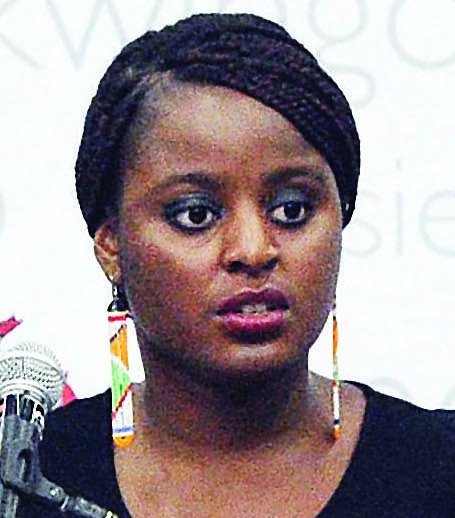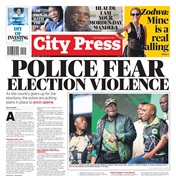
The first black woman to address the Stellenbosch University convocation was, by and large, expected to pen a reconciliatory address.
She spoke to a predominantly white audience, who were encouraged to come in droves by AfriForum and other alumni to ensure the conservative vote prevailed.
Perhaps they would have preferred it if she had spoken about hot summer days in the Boland sipping chilled white wine.
Perhaps they expected jokes about learning to sokkie and a reflection on the strides made at the institution in the quest for transformation.
But as Laurel Thatcher Ulrich once said, well-behaved women seldom make history. In less than 25 minutes, Nigerian-born and Eastern Cape-raised Lovelyn Chidinma Nnenne Nwadeyi barged her way into the university’s history books.
She used her flawless Afrikaans, English and isiXhosa to slaughter all of the institution’s holy cows, calling it out on its tributes to the architects of apartheid and the use of Afrikaans as a means to exclude and oppress.
“I know that a lot of people who know me were expecting me to do the whole kumbaya thing. I am known as a person of reconciliation and unity building, and that is a part of me. But this was a different moment,” said Nwadeyi of the speech, which, by yesterday, had attracted more than 32 000 views online and countless shares on social media.
The convocation was supposed to sit on November 5, but was postponed until last week because of student protests, which saw Nwadeyi on the front lines.
During the #FeesMustFall protests, she was there in the early hours of the morning, negotiating politely with police officers and furious motorists, urging them not to assault or run over students barricading roads with their bodies.
Ever pragmatic, the international studies master’s graduate was regarded by university authorities and her fellow students alike as a voice of reason. When she spoke, the students called her mbokodo, a sign of respect to their resolute female leader.
On the fourth day of the protests, she delivered an impassioned speech at midnight to thousands of students who had come from the residences to hear what the protesters had to say. It was her birthday, and the crowd started off by singing to her.
She told them: “I am going to say something and I need you to accept it in the correct spirit. My dear white friends, we can’t have you showing up at night and not show up during the day. This is the truth about what I am saying.
“Tomorrow is the last day of the week and it may be the last chance for us to force management to accept the terms we have given them, so we need this turnout to convince them.
“We can no longer be seen as a group of noisy and lazy black students; it is not acceptable. This is all about unity.”
Until then, about 200 students had taken part in the protests. The next day, there were more than 1 000.
For Nwadeyi, being an outsider at the white-dominated Stellenbosch University was not her first brush with alienation. Born in Lagos, she came to Queenstown in the Eastern Cape as a small child speaking only English and Igbo.
In a blog post last year, in which she dealt with xenophobia and why South Africans shouldn’t blame foreigners for “stealing” their jobs, she wrote: “For the first three years of my life in South Africa, my little brother and I barely saw my dad more than twice a month.
“What was he doing absent from the home other than selling pillowcases, duvets and bedsheets, going door to door on foot through the streets, villages and side roads of the old Transkei and Ciskei?
“My father would leave the house on Monday mornings after he and my mum got us ready for school. And he would be gone for days and weeks, selling the few pillowcases and bedsheets. On foot. We were never sure when he would return. But when he did, we were always more grateful for his safety and aliveness than anything else.”
She has her parents to thank for her work ethic – both of them graduated from Walter Sisulu University with diplomas of their own.
“I got my first job when I was 11 years old. I worked on the school bus in my town. I collected money for the bus driver, wrote out receipts and kept order on the bus. I didn’t get paid much, but it helped me learn that nothing comes easy; I learnt to be responsible and accountable to someone else.”
Her chameleon-like ability to fit in in any social group prepared her for life at Stellenbosch. But she finally found herself up against a brick wall while in Cape Town’s Camps Bay during “blik skut” – collecting money from motorists for the first-year students’ charity fundraiser.
“For the first time in the history of Lovelyn Chidinma Nnenne Nwadeyi’s life, I was called a ‘k****r’ to my face. And that night at res at a skakeling [social], two Afrikaans boys who one of my friends introduced me to refused to shake my hand during the introduction,” she wrote in another blog post.
“I died. I died 1 000 times.”




 Publications
Publications
 Partners
Partners








